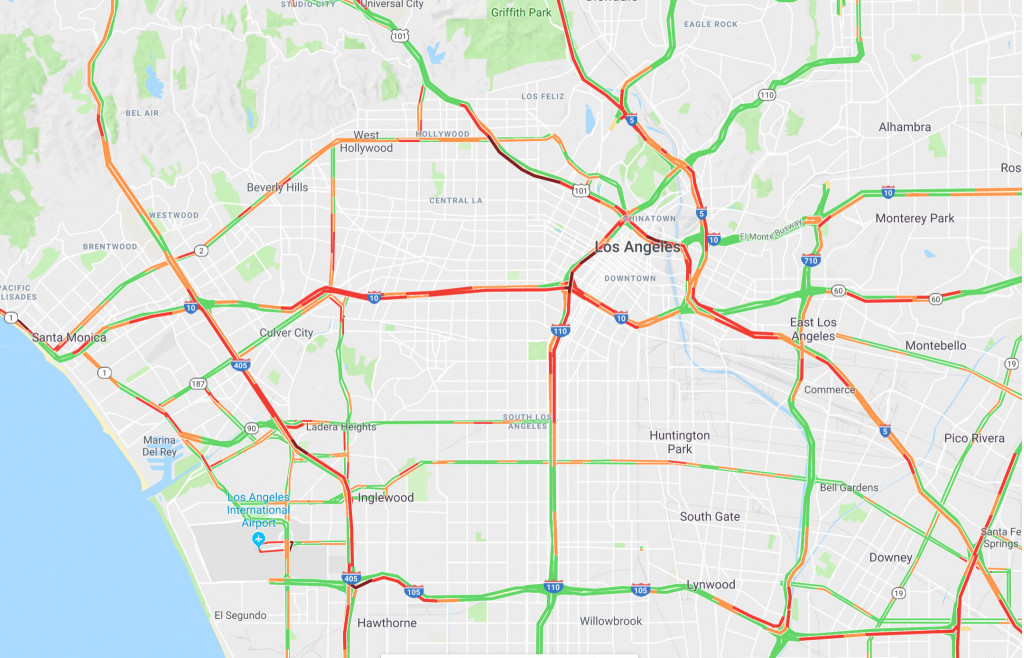While New York City is closer than ever to implementing a congestion charge, and thus becoming the first city in the United States to do so, a similar idea has been floated in Los Angeles.
According to a report from The Los Angeles Times, the city is looking to follow in N.Y.'s footsteps and may introduce its own congestion charge. These types of charges have not been implemented in the U.S., though they continue to expand in parts of Europe. London is most notable for charging a fee to enter parts of the city. The benefits include reduced traffic, pollution, and speedier public transit.
An issue is that while N.Y. is looking at the idea to reduce its strangling congestion problem in certain parts of Manhattan, it also has a robust public transit network. L.A. does not, which caused the city to become an epicenter for congestion problems in the U.S. in the first place. Ride-sharing services such as Uber and Lyft have only worsened the problem with more vehicles on public roads.

Traffic in Los Angeles on Google Maps
The Southern California Association of Governments released its first report on a potential congestion charge last Thursday, which suggests a charge for an area near the 10 and 405 highways. It's one of the most congested parts of the city as it features high-profile shopping areas, beaches and the Santa Monica pier.
The report floated a $4 charge to enter the area, which was calculated to reduce traffic delays and the miles driven in the small area by 20 percent. The charge also expects minor increases in biking, public transit, and walking. Drivers would pay the charge via a fast-track pass booth equipped with license plate readers. The report also incorporates discounts for residents (they'd pay just 40 cents), while low-income drivers would receive a 50-percent discount. Those who enter and leave the same day would only need to pay once as well.
The report is far from a proposal and is merely the first step at looking at a congestion charge to help solve traffic issues. It's unclear if such a proposal would ever have a chance at being implemented.